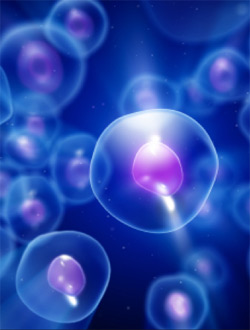
Rachel Taylor was diagnosed with MS 14 years ago.
It was terrifying. It was like having a wet, heavy blanket put over your life. I was active, I was a runner, I was outdoors playing and over the course of a few months, I couldnt figure out why I couldnt keep up Taylor told Ivanhoe.
Rachel knew what was wrong; shed been working with the MS society bike rides for years. Rachels in remission now, but she is still thrilled with Tom Lane Ph.D., Professor of Pathology at the University of Utahs stem cell discovery.
Professor Lane told Ivanhoe, We have animals that are paralyzed that cannot right themselves, and once we engraft the neural stem cells into the spinal cords, within three weeks, the majority of the animals, about 80 to 85 percent, will regain motor skills.
Researchers say MS damages myelin, a layer around nerve cells. Once injected, the human neural cells stimulate the mouses own cells to repair the damage. When nerve cell function returns, the mice can walk and run again.
Rachel says this discovery could be life-changing for many of her friends.
Researchers say after the mice regained function, their bodies rejected the stem cells, which vanished, eliminating the possibility that those cells could become tumors. Professor Lane is hoping this procedure could be ready for human clinical trials in two to three years.